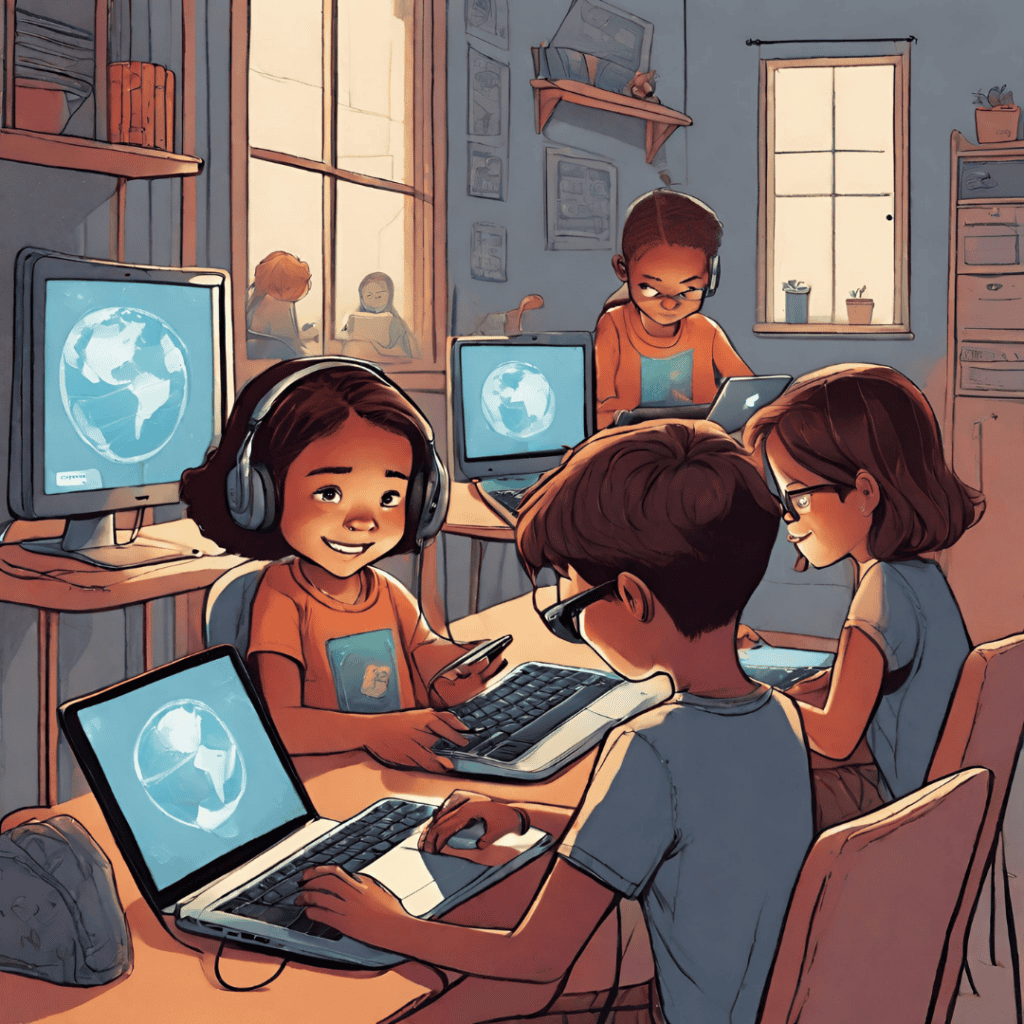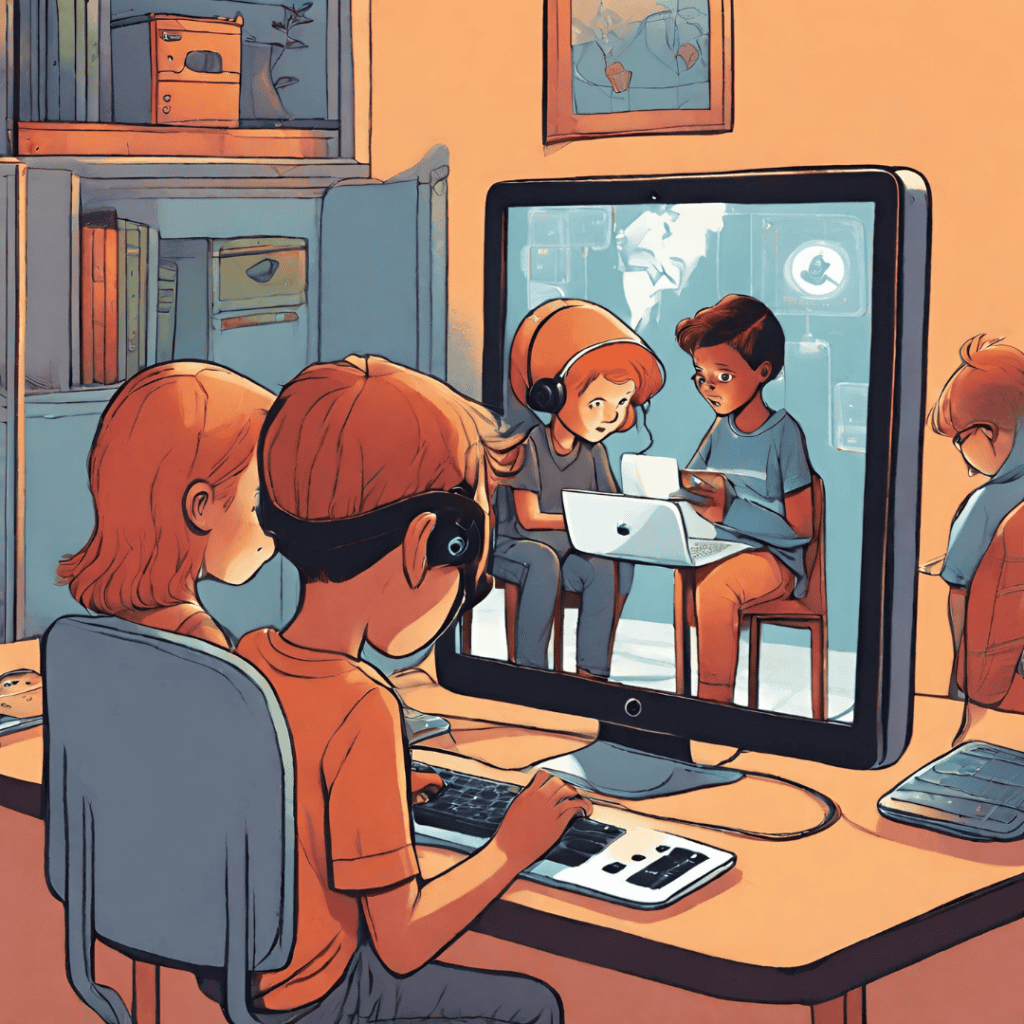The Path to Conscious Generations: Internet Safety for Children and Teenagers

Quick Summary
- Keep Children Safe on the Internet: Establishing clear guidelines, utilizing parental controls, and fostering open communication are fundamental aspects of a comprehensive internet safety strategy for kids and teenagers.
- Most Common Risks for Children Using the Internet: Exposure to inappropriate content, cyberbullying, online predators, and privacy concerns.
- Age Kids Should Be Allowed Online: Experts state that it is necessary to wait until the average age of 13 to allow children to step into the digital world.
- Safe Social Media Platforms for Children: Platforms with dedicated children’s sections and robust safety measures can offer a safer online experience.
- Internet Safety Tips for Kids: setting strong passwords, recognizing and reporting inappropriate content, and being cautious about sharing personal information online.
- Teaching Internet Safety to Kids: Teaching them to be critical thinkers, responsible digital citizens, and fostering a sense of self-awareness contributes to their overall online safety.
- Internet Safety in Schools: Schools play a crucial role in equipping students with the knowledge and skills needed to navigate the digital landscape responsibly and safely.
- Talking with Kids About Internet Safety: Creating a non-judgmental space encourages children to share their online experiences, report concerns, and seek guidance when faced with challenging situations.
- Internet Safety in Simple Words: Internet safety, in simple terms, refers to the precautions and practices implemented to protect individuals, especially children and teenagers, from potential dangers and risks while using the internet.
- When Your Child Sees Inappropriate Content: parents should remain calm, address the issue promptly, and use the opportunity to reinforce internet safety lessons.
- Child Searching for Inappropriate Things on the Internet: By addressing the underlying issues, parents can guide their children towards responsible online behavior.
- Talking with the Child About Inappropriate Internet Searches: Parents should create a safe space for their children to express themselves, explain the potential risks associated with such searches, and reinforce the importance of responsible online behavior.
- Nutcracker Contributes to the Online Safety of Children and Teens: Nutcracker’s reward system, designed specifically for children, allows you to assign them specific tasks. Rewards are given for each completed task. In this way, it becomes possible for children and teenagers to want to learn about internet safety.

The digital frontier offers a vast array of opportunities and knowledge, but it is not without its perils. In this era of constant connectivity, understanding the intricacies of internet safety for kids and teenagers is not just a necessity but a shared responsibility. This article;
- Delves into the multifaceted aspects of safeguarding our children online
- Exploring the common risks they face
- Discussing the age-appropriate introduction to the online world
- And unveiling the role of both parents and innovative tools like Nutcracker in fostering a secure digital environment.
Join us on a journey through the pathways of conscious generations, where empowerment, education, and understanding form the bedrock of ensuring a safe and enriching online experience for our children and teenagers.
How to Keep Children Safe on the Internet?
Every parent, who is aware of the risks of the digital world, is looking for information about internet safety for children. Informative materials such as the internet safety handbook can be guiding for parents. However, the first factor we need to draw attention to at this point is that internet safety for kids and teenagers requires a multifaceted approach. Establishing clear guidelines, utilizing parental controls, and fostering open communication are fundamental aspects of a comprehensive internet safety strategy for kids and teenagers. Parents play a pivotal role in creating a safe digital environment for their children.
What are the Most Common Risks for Children Using the Internet?
Children face various risks while navigating the online world, including exposure to inappropriate content, cyberbullying, online predators, and privacy concerns. This makes the topic of internet safety for kids and teenagers a very sensitive issue. Acknowledging these risks is the first step towards implementing proactive measures to mitigate potential dangers.
To comprehend the landscape of internet safety for kids and teenagers, and to heighten our awareness regarding the specific perils faced by youngsters, experts have devised a classification known as the 4C’s of online safety.
- Content: The exposure of children to content unsuitable for their age gives rise to risks falling under the content category.
- Contact: Interacting with individuals of malicious intent is encapsulated within the contact domain.
- Conduct: A child’s own precarious online behavior is enveloped by the cunduct category.
- Contract: Perils arising from children agreeing to the terms of a commercial digital product or service provider are encapsulated within the contract category.
What Age Should Kids Be Allowed Online?
Ensuring internet safety for kids and teenagers requires keeping them as far away from the digital world as possible until a certain age. Determining the appropriate age for a child to venture into the online realm is a nuanced decision that depends on individual maturity levels. While age restrictions provide a general guideline, parents should assess their child’s readiness and gradually introduce internet access with supervision. However, experts state that it is necessary to wait until the average age of 13 to allow children to step into the digital world.

Which Social Media Platform is Safe for Children?
Choosing the right social media platform for children involves evaluating safety features, age-appropriate content, and the platform’s commitment to online security. Platforms with dedicated children’s sections and robust safety measures can offer a safer online experience.
In today’s digital environment, keeping children away from social media platforms can be very difficult for parents. For this reason, social media platforms designed specifically for children have been developed. These platforms generally include the following features:
- Allow sharing of only age-appropriate content
- Allowing sharing only at certain time intervals
- Not allowing sharing of selfie photos
- Media downloading not allowed
- Parental control
What are the Internet Safety Tips for Kids?
Imparting internet safety tips for kids is essential for empowering them to navigate the digital world responsibly. Tips may include setting strong passwords, recognizing and reporting inappropriate content, and being cautious about sharing personal information online.
Internet safety tips for teenagers and kids that you as a parent can share with your child may include:
- Risks arising from sharing personal photos and information online
- The importance of not sharing passwords with others
- Why it is important not to communicate online with strangers
- How following the rules you set as a family will keep them safe
- The support you will give if they report it to you when they are cyberbullied.
- Confidence in communicating openly with you about internet safety at all times.
How to Teach Kids Internet Safety?
Educating children about internet safety involves age-appropriate conversations, interactive activities, and using relatable examples. Teaching them to be critical thinkers, responsible digital citizens, and fostering a sense of self-awareness contributes to their overall online safety.

Are Students Taught Internet Safety in Schools?
The integration of education internet safety for students into school curricula is gaining prominence. Schools play a crucial role in equipping students with the knowledge and skills needed to navigate the digital landscape responsibly and safely. In order to teach internet safety for kids, UK schools include this subject in their curriculum. Lessons about internet safety for elementary students continue with a broader scope in secondary schools.
How to Talk to Kids About Internet Safety?
Open and honest communication is the key when discussing internet safety with kids. Creating a non-judgmental space encourages children to share their online experiences, report concerns, and seek guidance when faced with challenging situations.
Giving internet safety advice to teenagers can be more difficult than talking to younger kids about this topic. Teenagers born into a digitalizing world may know the online space much better than their parents. At this point, improving yourself in the field of internet safety for adults and parents will help you understand your children. When they see that you understand them, it may become easier for them to communicate with you.
What is Internet Safety in Simple Words?
When explaining internet safety to kids, you may not know how to talk to them in a way they will understand. We want to help you in this regard too.
Internet safety, in simple terms, refers to the precautions and practices implemented to protect individuals, especially children and teenagers, from potential dangers and risks while using the internet. It encompasses strategies to ensure a secure online experience.
You can explain to your child what strategy you have adopted to follow the internet safety rules for teenagers and kids that apply in your family. Knowing what a rule does can make it easier for your child to follow it.

What Should You Do When Your Child Sees Inappropriate Content on the Internet?
Encountering inappropriate content is a potential risk online. In such instances, parents should remain calm, address the issue promptly, and use the opportunity to reinforce internet safety lessons. Implementing content filters and monitoring tools can also help prevent future exposure.
The Key is Understanding: Why is Your Child Searching Up Inappropriate Things on the Internet?
Understanding the reasons behind a child’s exploration of inappropriate content is crucial for effective intervention. Factors such as curiosity, peer influence, or a lack of awareness may contribute to these behaviors. By addressing the underlying issues, parents can guide their children towards responsible online behavior. Thus, an important step is taken regarding internet safety for kids and teenagers.
How Should You Talk with Your Child About Inappropriate Internet Searches?
Approaching the conversation about inappropriate internet searches with empathy and understanding is vital. Parents should create a safe space for their children to express themselves, explain the potential risks associated with such searches, and reinforce the importance of responsible online behavior. In this way, creating a communication environment where your child feels safe is one of the most important steps in ensuring internet safety for kids and teenagers.
How Does Nutcracker Contribute to the Online Safety of Children and Teens?
Nutcracker is aware of how sensitive the issue of internet safety for kids and teenagers is for parents. That’s why the software we developed allows parents to monitor and control children’s online habits. While doing this, it aims to inform its users with quality content. It also makes smart suggestions for content appropriate to your children’s age.
Nutcracker’s reward system, designed specifically for children, allows you to assign them specific tasks. Rewards are given for each completed task. In this way, it becomes possible for children and teenagers to want to learn about internet safety. You can download Nutcracker, which offers you the opportunity to protect your child against online risks, with all these opportunities, and start using it immediately!
